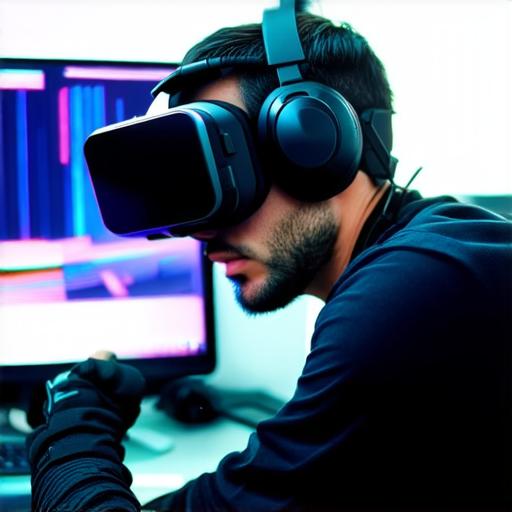
What are the drawbacks of virtual reality?
The Cost of VR Hardware
One of the biggest challenges facing VR developers is the high cost of hardware. While the price of VR headsets has come down over the years, the cost of other components, such as computers and sensors, can still be prohibitive for many users. This can limit the adoption of VR technology, especially in industries where budgets are tight.
Motion Sickness and Discomfort
Another common complaint about VR is that it can cause motion sickness and discomfort. This is particularly true for people who are prone to motion sickness in real life, but it can also affect anyone who spends a lot of time in virtual environments. The discomfort can range from mild nausea to severe headaches, which can make VR experiences less enjoyable and even dangerous for some users.
Limited Interaction with the Real World
One of the key benefits of VR is that it allows users to interact with virtual environments in a way that feels realistic. However, this also means that users may become increasingly disconnected from the real world. This can lead to social isolation and other negative consequences for individuals and society as a whole.
Privacy Concerns
Virtual reality technology collects a lot of data about users, including their movements, location, and even biometric information like heart rate and brain activity. This raises serious privacy concerns, particularly in industries where user data is highly sensitive, such as healthcare and finance. Developers need to be mindful of these risks and take steps to protect user privacy.

Addiction and Dependence
Finally, there’s the risk of addiction and dependence when it comes to virtual reality. Some users may become so immersed in virtual environments that they lose touch with reality and neglect their responsibilities in the real world. This can have serious consequences for individuals and society as a whole, particularly if VR is used to treat mental health conditions or as a form of entertainment.
Conclusion
While virtual reality technology offers many benefits, it’s important for developers to be aware of its potential drawbacks. By addressing these challenges head-on, developers can create more effective and ethical VR experiences that benefit users and society as a whole. Whether you’re a developer working in gaming, education, or healthcare, it’s essential to stay informed about the latest trends and best practices in VR development.
FAQs
1. What are some common complaints about virtual reality?
Motion sickness and discomfort, limited interaction with the real world, privacy concerns, addiction and dependence.
2. How can developers address these challenges?
By focusing on user experience, ensuring that hardware is affordable and accessible, protecting user privacy, and promoting responsible use of VR technology.
3. What industries are using virtual reality technology?
Gaming, education, healthcare, and more.


